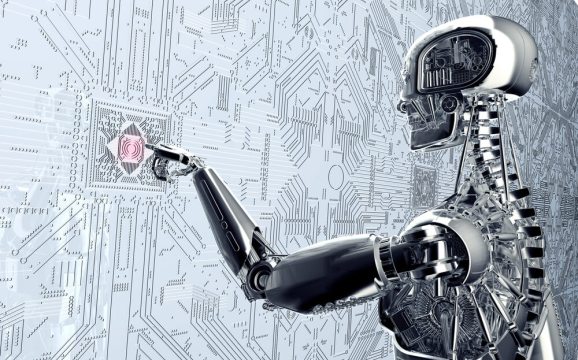We are in a race for quantum supremacy. Google, IBM, and researchers across the globe are working on solving the most complex of computations, computations that could only be solved by the most advanced quantum computers.
copyright by venturebeat.com
 Quantum computers are very similar to the computers in households today — only much more powerful. So powerful, in fact, that they can solve in milliseconds problems that would take a normal computer thousands of years to solve. For several reasons, quantum computers could prove quite beneficial with more widespread application. They could help with a multitude of complex issues, from things like creating solutions for climate change to organizing massive sets of data about health care.
Quantum computers are very similar to the computers in households today — only much more powerful. So powerful, in fact, that they can solve in milliseconds problems that would take a normal computer thousands of years to solve. For several reasons, quantum computers could prove quite beneficial with more widespread application. They could help with a multitude of complex issues, from things like creating solutions for climate change to organizing massive sets of data about health care.
Solving real-word problems
“As companies such as Microsoft, Google, and IBM continue to develop technologies such as this, dreams of quantum computing are becoming a reality,” writes Daryl Harrington for InfoWorld . “This technological innovation is not about who is the first to prove the value of quantum computing. This is about solving real-world problems for our future generations in hopes of a better world.”
In the example of the Internet of Things (IoT), where billions of devices are constantly connected, we are inundated with data. According to IBM, we create 2.5 quintillion bytes of data every day — and that number is increasing. This data is invaluable, but it is so abundant that we are unable to analyze it. Quantum computers could assist in our understanding of the data we’re generating, but only with the help of artificial intelligence. “Machine learning, the field of AI that allows Alexa and Siri to parse what you say and self-driving cars to safely drive down a city street, could benefit from quantum computer-derived speedups,” writes Mark Anderson for the IEEE .
Quantum Computing and AI
The hybrid study of quantum computers and artificial intelligence, or quantum machine learning, is still in its very early stages. Many of the machine learning algorithms are still theoretical and require large-scale quantum computers to be tested. Still, the marriage between the two has already proven fruitful. How far has AI come? Artificial intelligence has integrated itself, in some form, in many areas of our everyday lives. From algorithms that sort our emails to machines that best us in video games, we seem to live in a world populated with smart machines.
Why do we need quantum computers when our best chess players are outmaneuvered by a machine? Why power up automation software that can run autonomous cars? While it may seem that artificial intelligence has already reached its zenith, in reality, we are far away from creating truly intelligent machines capable of solving difficult problems. […]
read more – copyright by venturebeat.com


We are in a race for quantum supremacy. Google, IBM, and researchers across the globe are working on solving the most complex of computations, computations that could only be solved by the most advanced quantum computers.
copyright by venturebeat.com
Solving real-word problems
“As companies such as Microsoft, Google, and IBM continue to develop technologies such as this, dreams of quantum computing are becoming a reality,” writes Daryl Harrington for InfoWorld . “This technological innovation is not about who is the first to prove the value of quantum computing. This is about solving real-world problems for our future generations in hopes of a better world.”
In the example of the Internet of Things (IoT), where billions of devices are constantly connected, we are inundated with data. According to IBM, we create 2.5 quintillion bytes of data every day — and that number is increasing. This data is invaluable, but it is so abundant that we are unable to analyze it. Quantum computers could assist in our understanding of the data we’re generating, but only with the help of artificial intelligence. “Machine learning, the field of AI that allows Alexa and Siri to parse what you say and self-driving cars to safely drive down a city street, could benefit from quantum computer-derived speedups,” writes Mark Anderson for the IEEE .
Quantum Computing and AI
The hybrid study of quantum computers and artificial intelligence, or quantum machine learning, is still in its very early stages. Many of the machine learning algorithms are still theoretical and require large-scale quantum computers to be tested. Still, the marriage between the two has already proven fruitful. How far has AI come? Artificial intelligence has integrated itself, in some form, in many areas of our everyday lives. From algorithms that sort our emails to machines that best us in video games, we seem to live in a world populated with smart machines.
Why do we need quantum computers when our best chess players are outmaneuvered by a machine? Why power up automation software that can run autonomous cars? While it may seem that artificial intelligence has already reached its zenith, in reality, we are far away from creating truly intelligent machines capable of solving difficult problems. […]
read more – copyright by venturebeat.com
Share this: